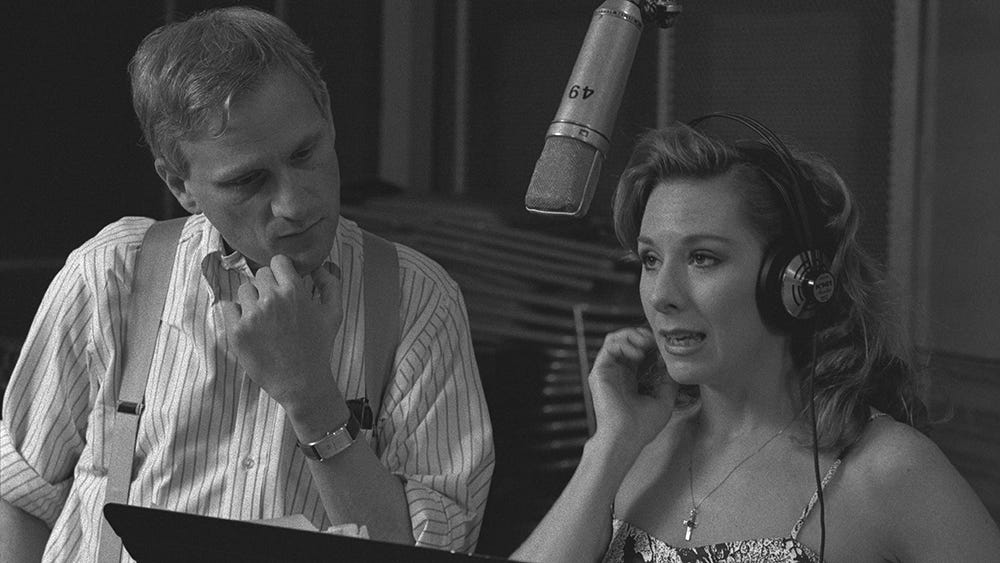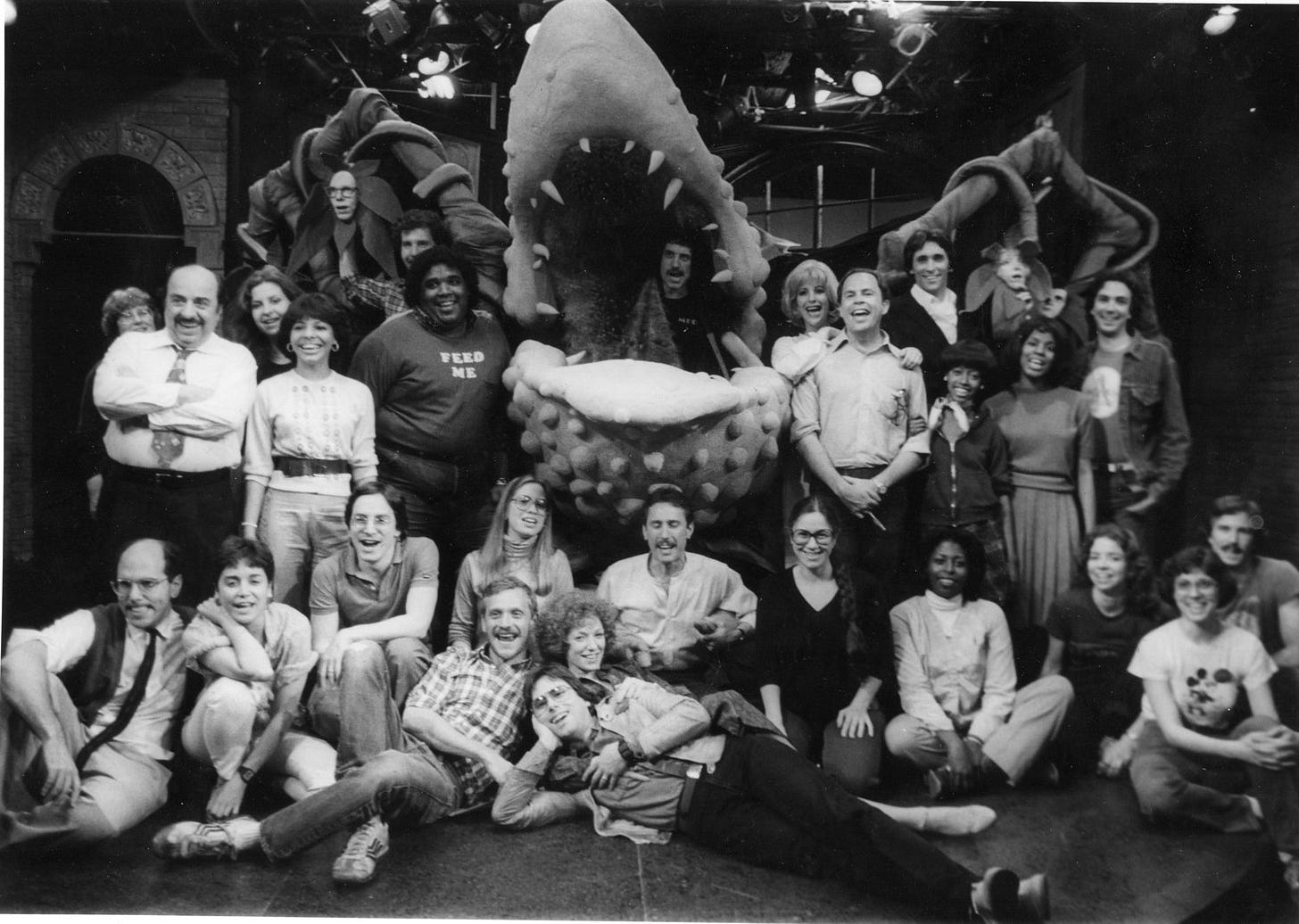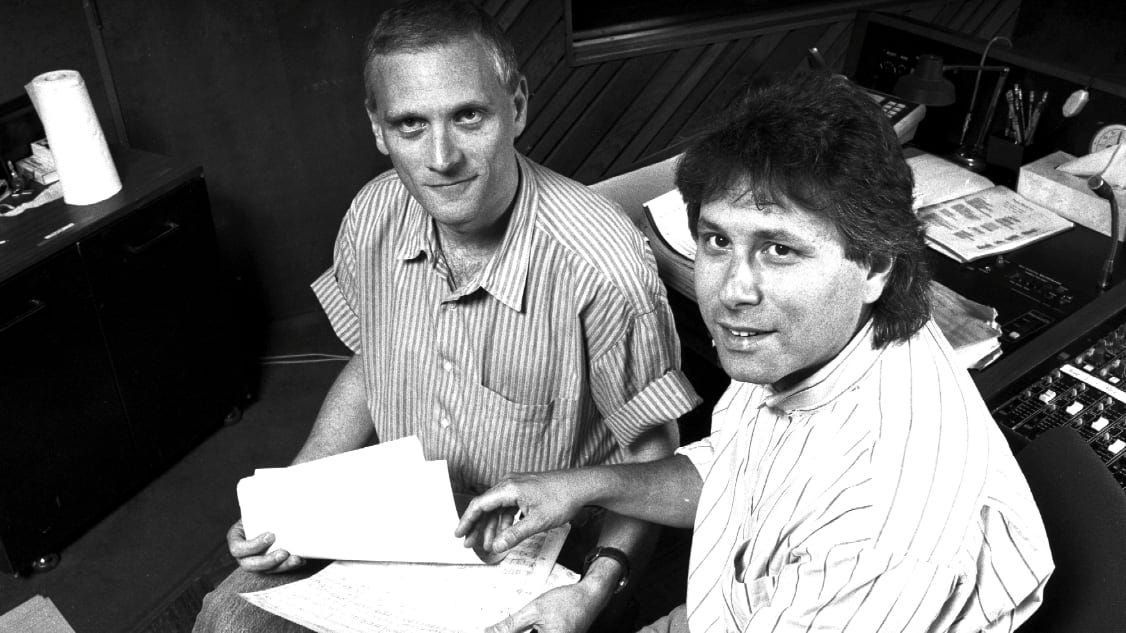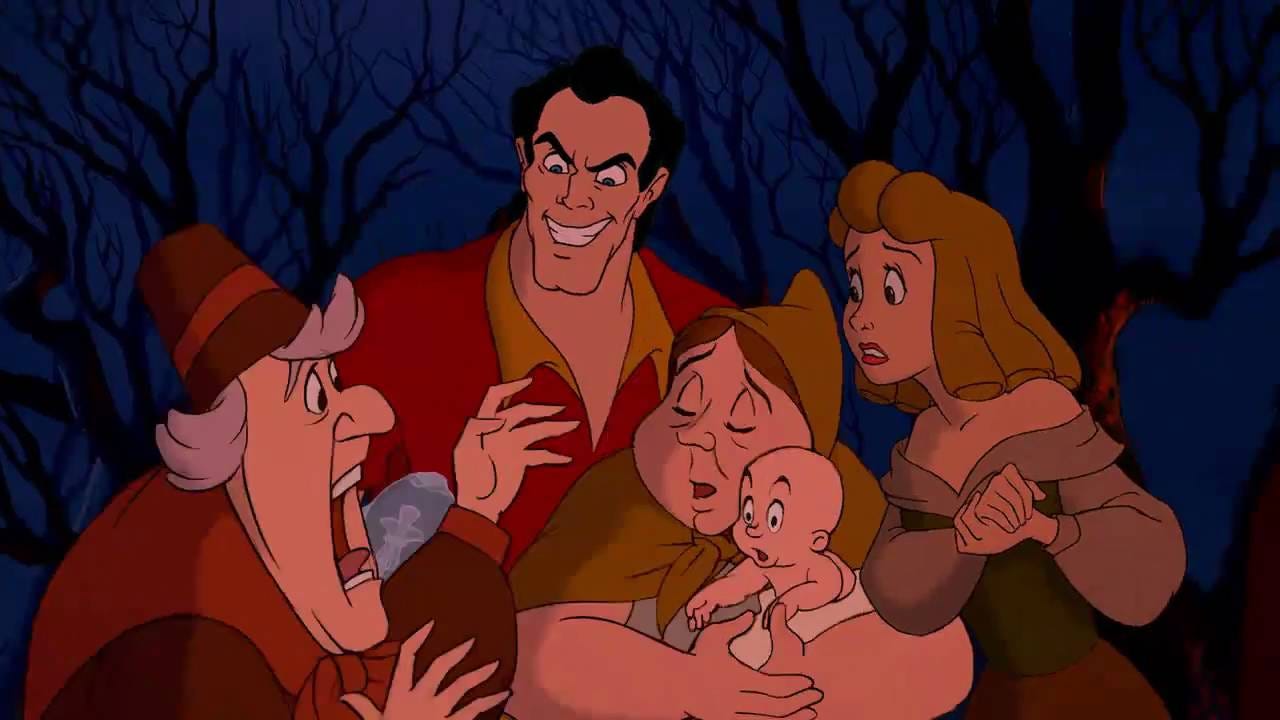Simon & Garfunkel, Sonny & Cher, and Ike & Tina Turner are all iconic musical duos, but for Disney fans, no one created magic like Alan Menken and Howard Ashman. While Menken, who will turn 74 in July, remains a successful composer who contributed new songs to the live-action Beauty and the Beast, Aladdin, and The Little Mermaid, Ashman is no longer by his side. The prolific songwriter passed away on March 14th, 1991, eight months before Beauty and the Beast's premiere, meaning he never got to see the final film.
In 1988, while working on songs for The Little Mermaid, Ashman was diagnosed with HIV and, due to the lack of treatment at the time, lost his battle to aids only three years later. I watched Howard on Disney Plus in 2020 and was moved to tears by his story as well as the unfathomable homophobia surrounding the epidemic in the late 80s and early 90s.
“He was the force behind what all this has become. It came from his heart and his intellect, and he didn’t get to live to see it, but his work lives on,” -Alan Menken
Society has come a long way since then, with most HIV carriers living long, healthy lives. In February 2023, ABC News reported a 5th person was cured of the virus, and today, the phrase Undetectable = Untransmitable has become a popular campaign letting the public know those who maintain an undetectable viral load can't transmit HIV to others. Unfortunately, in 1988, an HIV diagnosis was a death sentence.
I wavered between various movies for the first Monday of Pride Month before realizing while writing last week's newsletter on The Little Mermaid that this was the perfect time to cover a documentary, specifically one on the man responsible for bringing Disney princess films back to life. Ashman was the genius behind songs like "Part of Your World" and "Friend Like Me." He also wrote the 1982 Broadway show Little Shop Of Horrors and penned lyrics for the songs which Menken composed. For 2017's live-action Beauty and the Beast, Menken honored his friend by using Ashman's never before heard lyrics in the finale song.
"Winter turns to spring, famine turns to feast. Nature points the way, nothing left to say, beauty and the beast."-Howard Ashman's original lyrics for "Beauty and the Beast."
Howard takes viewers through the creative genius' childhood up until the day he died, beginning with a story from his sister Sarah Gillespie about a time in their childhood when Howard called her up to his room to show her one of his early creations. Howard had created a series of vignettes in his bedroom using his toys and, scene by scene, showed his sister around, telling stories to go along with the displays he'd set up. This is one of the most moving parts of the documentary. Howard's imagination was remarkable since childhood, making it no surprise he ended up working with Disney as an adult.
Later, the documentary moves into Howard's adolescence and college years, when he falls in love with Stuart White, one of his first partners. Stuart has a devastating story as he dealt with addiction most of his adulthood and was never able to conquer his goals the way Howard did. Eventually, the two split up, and Stuart died in the early 80s of AIDS, around the time Howard was reveling in the success of Little Shop of Horrors.
Little Shop of Horrors
Howard was not an overnight success and had many failures throughout his time in theater. However, Little Shop of Horrors was one of his greatest successes. Before ever meeting with Disney executives, Howard found success off-broadway with his show, based on the 1960 horror-comedy, The Little Shop of Horrors. The show came about after Howard met with Alan Menken, forming a true dynamic duo for Disney and theater fans. Howard was a huge fan of the campy Roger Corman film starring Jack Nicholson and Jackie Joseph and set out to create something reminiscent of The Rocky Horror Picture Show.
Howard and Alan met working on a musical adaptation of Kurt Vonnegut's God Bless You, Mr. Rosewater, which unfortunately was not received well. Luckily, the two reunited to create a work of art that inspired a 1986 musical film starring Rick Moranis and Steve Martin and a recent Off-Broadway revival starring Euphoria's Maude Apatow as Audrey.
"Suddenly, Seymour" is a fan-favorite for theater fans, often sung by Ariana Grande whether she's doing karaoke with her friends or appearing on an episode of Carpool Karaoke with Family Guy creator Seth McFarlane. Needless to say, Howard successfully expressed his genius during the creation of Little Shop of Horrors, and its legacy has lived on.
One thing to know about Howard, which the documentary so clearly expressed, is he was not a quitter. He was the epitome of Walt Disney's message, expressed in Meet The Robinsons, to keep moving forward. Every time he failed, no matter how many times people warned him not to follow through with his next idea, he always tried again. He saw failure as redirection, and that's how he ended up creating so much magic in his lifetime.
Another wonderful thing that happened during Howard's Little Shop of Horrors era is he met his partner Bill Lauch. Howard and Bill moved to a home in the Hamptons, and they would remain together until Howard's death. Bill remained by Howard's side through his every success and failure into his final days on Earth.
What I love about Howard is that it honors the songwriter's failures as much as it honors his triumphs. Before The Little Mermaid came to be, Howard adapted the 1975 film Smile into a stage musical starring Jodi Benson. Unfortunately, like God Bless You, Mr. Rosewater, Smile was met with poor reviews, and Howard was pretty discouraged and defeated. However, the failure could now be viewed as a blessing in disguise because not long after, business mogul David Geffen encouraged then-Disney studio head Jeffrey Katzenberg to contact Howard about working with the company. Thus, the Disney Renaissance began.
Howard’s Time At Disney
Howard contributed some of the most fun, heart-wrenching, and magical songs to Disney films at a time when Disney animated films were not thriving the way they were decades earlier. Before The Little Mermaid, Disney had premiered its last Disney princess film in 1959. Sleeping Beauty was considered a box office failure that cost Disney a lot of money, but The Little Mermaid was a massive success. As the documentary showcases, Howard's songwriting heavily influenced how well the movie performed.
“He was the force behind what all this has become. It came from his heart and his intellect, and he didn’t get to live to see it, but his work lives on,”-Alan Menken
I recently saw a tweet from @hiimbobbi, host of The Afternoon Special, where she explained every Disney princess film has an "I want" song where the princess sings about her greatest desire. This is something that came up in Howard as the songwriter deeply understood the importance of this concept. This first appeared in the documentary when Howard was talking about Little Shop of Horrors. In the musical, Audrey sits on a trashcan and sings about what she wants in "Somewhere Green." Howard believed the want song is crucial to storytelling in musicals, pointing out that Eliza Doolittle in My Fair Lady and Fiona MacLaren in Brigadoon both had want songs.
Howard circled back to this idea later in the documentary when introducing Howard's work on The Little Mermaid. Arguably, Snow White had a want song with "I'm Wishing," as did Cinderella with "A Dream Is A Wish Your Heart Makes," and Pinocchio with "When You Wish Upon A Star." However, Howard brought new life to the want song, explaining how it played into the plot and informed the audience early on what the main character's goal is.
"Part of Your World" is crucial to Ariel's story because, from the get-go, she tells the audience she longs to be a human living on the shore instead of under the sea being controlled by her father. The same goes for Belle (Reprise) from Beauty and the Beast, where Belle sings about her desire to get out of her small town full of small-minded people and find adventure where someone might better understand her.
Howard explained that the music must drive the plot, which is why "Under The Sea" was just as crucial to The Little Mermaid as "Part of Your World." The upbeat song is Sebastian's failed attempt at reminding Ariel of how much better life is underwater so that she'll forget about going to the surface and living as a human. He has to sing this song to try and get Ariel to stay, even though she ultimately disregards his advice.
The songwriter also contributed to the creation of Ursula. After seeing a series of sketches for the sea witch, he went with the one that was inspired by Baltimore drag queen Divine. As I mentioned in my newsletter for The Little Mermaid, Howard likely felt a connection to Divine because she was another member of the LGBTQ+ community from Baltimore, where he grew up.
Howard went on to win Best Original Song at the Academy Awards for "Under The Sea," but as the documentary reveals, a few days after the award ceremony, he came clean to Alan about his HIV diagnosis.
As his health declined, he continued working, moving from The Little Mermaid to Beauty and the Beast. Because of the prejudices at the time, Howard kept his illness a secret, and Jeffrey was furious when he found out, as he would have made the necessary accommodations for Howard to work on the movie if he had known. Instead, he found himself getting irritated with Howard because he wasn't showing up to the studio when he was supposed to and kept insisting everyone brought their storyboards and other work to him in New York.
Did Howard Tell His Own Story In His Disney Lyrics?
One of the debates that comes up in Howard is whether or not he was working his own experiences into his lyrics or if he was simply able to put himself in the characters' shoes. Former president of Disney animation Paul Schneider argued that Howard was expressing his world through his Disney lyrics, and Bill agrees. As a gay man dying of AIDS, it's easy to see the connection between him and his songs.
“We don’t like what we don’t understand. In fact, it scares us”-Beauty and the Beast, “The Mob Song”
Howard specifically uses the Mob Song from Beauty and the Beast as an example. Gaston leads his mob to the Beast's castle, encouraging them to kill him with his lyrics, and Howard compares this to some of the AIDS protests and the public's reaction to the virus as well as the LGBTQ+ community. However, Howard's sister Sarah disagrees, praising Howard's empathy and ability to step into the characters' positions while writing songs for them.
Howard is one of my favorite documentaries on Disney+, as I believe Howard's story is an important one to tell. He's responsible for reviving Disney and making Disney animated films what they are today. Sadly his life ended too soon. Howard felt like an important documentary to cover for Pride month not only because of his talent but because of its discussion of the AIDS epidemic, which seems very taboo for Disney. Howard even addressed how the songwriter was worried about the company's reaction to his disease, fearing he'd be fired because they wouldn't want a gay man with AIDS working on children's films.
“The mob song is a perfect manifestation of people seeking a scapegoat for their troubles and identifying a villain and wanting to exterminate it.”-Bill Lauch
The ignorance surrounding the AIDS epidemic led to the many lives lost, but trailblazers like Elton John and Elizabeth Taylor, who used their platforms to raise awareness and eliminate fear, are responsible for how far society has come. I want to be a part of the group of people who stand up for the underdogs. After all, I think that's what draws so many people to Disney 100 years after it was founded. People like Howard and all the other kids and Disney adults see themselves in the characters who never fit in or were cast out, like Belle in her provincial town, and they believe if the characters can make it out and find a world that understands them, they can too.
As Paul argued, it's hard to separate this message from the LGBTQ+ community. I covered Howard this week to honor his legacy and draw attention to society's atrocious and homophobic reaction to the AIDS epidemic, hoping it would raise awareness so nothing like that would happen again. Unfortunately, in today's society, we seem to be moving backward in many ways. Luckily, as of June 3rd, a federal judge ruled Tennesee's drag ban laws unconstitutional, and I hope we keep moving in this direction.
“You can never take Beauty and the Beast away from the aids epidemic because it’s a movie that speaks to its time” -Thomas Schumacher
I want to end this newsletter with my own Pride Month message. The Gay Rights movement, at its core, has always been based in love. It is a community of citizens from all over the world wanting nothing more than the freedom to love who they love. It was the Indian poet Rabindranath Tagore who said, "Love is the only reality, and it is not mere sentiment.
It is the ultimate truth that lies at the heart of creation." Love is our natural state, and there is no way to defeat it, the same way we can not defeat the law of gravity. I leave you with this to hopefully calm your worries and give you faith and as a reminder to those still in opposition to the LGBTQ+ community: A fight against love will never win.








